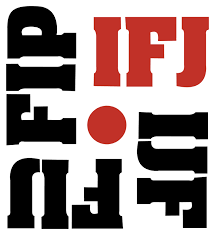In recent weeks, there have been several cases of monkeypox infection in Europe, the United States, Australia and Canada. After cases of infection in gay, bisexual and other men who had sex with men were discovered, the media began to report on monkeypox as a disease “transmitted by gay sex.”
Taloid Kurir in text “MONKEY POX ARE TRANSMITTED BY GAY SEX! They are not officially in Serbia yet, BUT IF YOUR HUSBAND HAS THEM, YOU CAN END THE MARRIAGE! (PHOTO)” in addition to homophobia, also presented untruths and misinformation. In the text, Kurir refers to the information published by the World Health Organization (WHO), and reports “how the largest number of cases was recorded among men who had sexual relations with men!”. However, they omit the information that the advisor for HIV, hepatitis and sexually transmitted infections at the WHO Andy Sill emphasized that although “we see some cases among men who have sex with men, this is not a gay disease” and added that “everyone can get monkeypox in close contact with an infected person.”
Some other media also had titles and narratives similar to those in Kurir. In a conversation with virologist and microbiologist Milanko Shekler, they are also used by Radio Television of Vojvodina (RTV). Instead of clearly and timely informing the public about monkeypox, the public service, with its text “DO NOT PANIC: Most homosexuals suffer from monkeypox”, contributes to stigmatization, spreading fear and mistrust towards gay and bisexual men. RTV subsequently changed the title, which speaks of an observed mistake, but the text still contributes to the stigmatization of the LGBTQ + community instead of objectively informing about the disease in accordance with the public interest.
The United Nations has also drawn attention to the problem: “Stigma and guilt undermine trust and the ability to respond effectively to epidemics like this,” said Matthew Cavanaugh, deputy chief executive of UNAIDS. This emphasizes the damage that such narratives do to public health and society as a whole.
Stigmatization and targeting of certain groups not only harm a certain community, but also disrupt public health. The media should approach this topic as a health problem, providing relevant information of public interest, without spreading homophobia. In contrast, such media coverage is very reminiscent of HIV reporting during the 1980s and poses a real danger of increasing stigma against the LGBTQ + community.
The media should report in accordance with the Code of Ethics for Journalists of Serbia, but also be aware of their responsibilities when reporting on sensitive topics. The Code of Ethics explicitly states that “a journalist must be aware of the dangers of discrimination that may be spread by the media and will do everything possible to avoid discrimination based on, inter alia, race, gender, age, sexual orientation, language, religion, political or other opinion, national or social origin ”.
In addition, we remind the media of their role and responsibility towards society, in this case it is important to protect public health and safety of citizens, and stigmatization of one social group and creating misconceptions about ways of transmitting disease contribute to the opposite effect.
Media Diversity Institute Western Balkans
Civil Right Defenders
Independent Journalists’ Association of Serbia
Belgrade Pride
National Center for Sexual and Reproductive Health – POTENT
Organization Da se zna!
Duga Association
Labris – a lesbian human rights organization
Rainbow Ignite
Organization L* – Communio
ZOOMER.rs
E8 Center
Reflektor teatar
Talas
ERA – Equal Rights Association for Western Balkans and Turkey
Group „IZAĐI“
XY Spectrum
Glic
Geten








